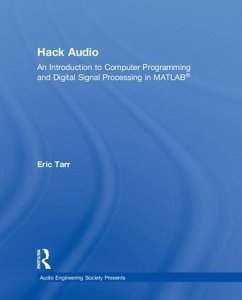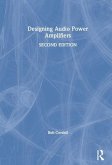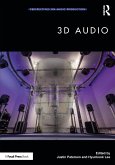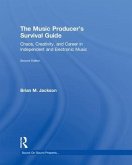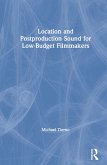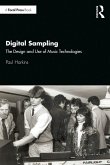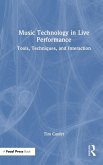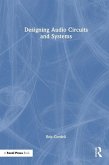Computers are at the center of almost everything related to audio. Whether for synthesis in music production, recording in the studio, or mixing in live sound, the computer plays an essential part. Audio effects plug-ins and virtual instruments are implemented as software computer code. Music apps are computer programs run on a mobile device. All these tools are created by programming a computer.
Hinweis: Dieser Artikel kann nur an eine deutsche Lieferadresse ausgeliefert werden.
Hinweis: Dieser Artikel kann nur an eine deutsche Lieferadresse ausgeliefert werden.
"Part of Hack Audio's success is its ability to convey information in a variety of ways. Tarr's written explanations are always concise but never lacking in information. The page count never feels daunting since large portions of each chapter are dedicated to graphics and sample MATLAB code. The sample code is kept succinct, which should help students understand the purpose of each script. [...] Hack Audio is able to capture readers' attention through compelling illustrations (i.e., block diagrams, Cartesian graphs) and "visualizations" (i.e., waveforms, characteristic curves, impulse responses, frequency responses, and spectrograms). The block diagrams were a personal favorite and helped to illustrate the interconnectedness of certain audio effects (i.e., inverting the delay used for a notch filter results in a band-pass filter). Students will become comfortable discussing audio effects in a number of different ways: graphically, verbally, and sonically. [...] Hack Audio is an unpretentious and pleasant read, buoyed by Tarr's love and passion for the subject. All students and instructors in an audio-related field should check out the Hack Audio website. Both the blog and textbook will quickly become your favorite go-to resources for digital signal processing concepts." Brandon Cudequest, Threshold Acoustics, LLC. Chicago, Illinois

